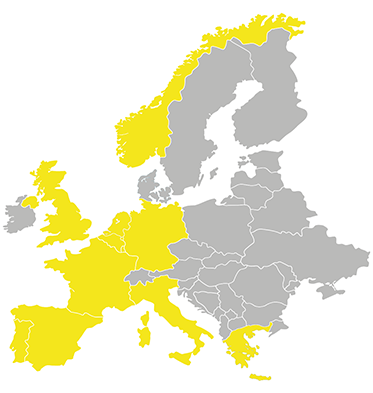Project title: Batteries reuse and direct production of high performances cathodic and anodic materials and other raw materials from batteries recycling using low cost and environmentally friendly technologies
Funding programme: Horizon Europe
Action type: Research & Innovation Action (RIA)
Duration: 01/09/2022 – 31/08/2026
Overview of the RHINOCEROS project
As reliable energy storage solution for electrified mobility, stationary storage and consumer electronics, Lithium-ion batteries (LIBs) are at the forefront of Europe’s climate and environmental sustainability; yet the market growth generates an increasing demand for battery raw materials. Currently depending mainly on imports for LIBs, Europe is investing in innovative recycling technologies that will recover not only valuable raw materials, but also, whenever possible, all components of the cells, thus increasing sustainability.
The RHINOCEROS project aims to develop, improve and demonstrate economically and environmentally viable routes for recycling EoL LIBs from electric vehicles (EVs) and stationary energy storage systems. Within the project, these innovative solutions will be tested and demonstrated in industrially relevant environments.
Project objectives
- Develop a smart sorting and dismantling system that enables the automated classification and dismantling of LIBs from EVs and stationary energy systems and the reassembly of operational modules in new repurposed batteries.
- Propose novel solutions for the reuse and repurpose of batteries for second life applications.
- Develop a set of cost-efficient, flexible and environmentally friendly routes targeting the recycling of all materials present in LIBs (e.g., metals, graphite, fluorinated compounds and polymers, active materials).
- Identify and address health risks, environmental impacts, safety hazards and new safety practices related to the developed processes; perform cost analysis.
- Validate the recovered material through the synthesis of new high-performance electrodes and elements for next generation batteries – thus demonstrating the circularity, societal, environmental and economic benefits. 6. Validate the most promising process at TRL 6 pilot level.
- Disseminate, communicate and exploit the results of the project amplifying their impact.
Our involvement in the RHINOCEROS project
Within the RHINOCEROS project, PNO Innovation Belgium leads the development and implementation of the dissemination, communication and clustering strategy. In addition, PNO is also a key contributor in shaping the stakeholders engagement and exploitation tactics of the project. A particular focus is placed on identifying and engaging with relevant stakeholders for further exploitation activities, as well as market and business analysis to support the consortium into bringing the technologies available.









